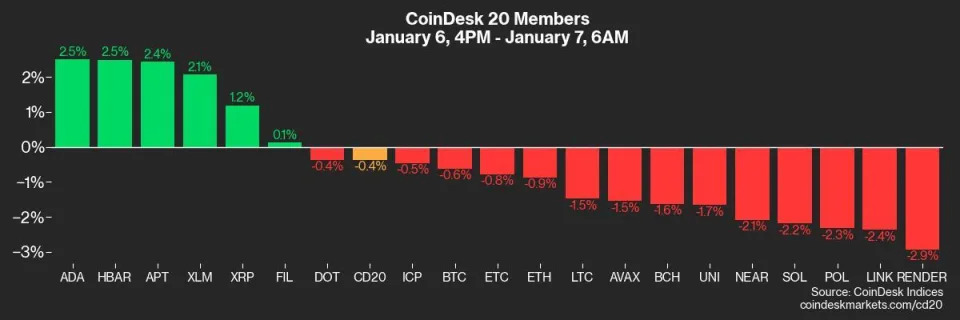New York, — As digital assets continue to revolutionize the financial landscape, HorizonPointe Financial Group (HPFG) has announced the launch of its specialized Digital Asset Education Services. This initiative aims to equip investors with the knowledge and tools necessary to navigate the burgeoning digital asset market. Andrew Evan Watkins, HPFG’s Chief Analyst, provides an in-depth analysis of this service and emphasizes its significance for portfolio diversification.
Understanding Digital Assets
The Internal Revenue Service (IRS) defines digital assets as items created and stored digitally that hold value, have identifiable ownership, and can be discovered. These assets are recorded on cryptographically secured distributed ledgers or similar technology. Common examples include:
· Cryptocurrencies: Digital or virtual currencies that use cryptography for security and operate on decentralized systems, such as Bitcoin (BTC) and Ethereum (ETH).
· Stablecoins: A type of cryptocurrency designed to maintain a stable value by pegging it to a reserve asset like the U.S. dollar; examples include Tether (USDT).
· Non-Fungible Tokens (NFTs): Unique digital tokens representing ownership of specific items or content, such as digital art or music, each with a distinct digital signature ensuring its uniqueness.
HPFG’s Digital Asset Education Services
HPFG’s newly launched Digital Asset Education Services are designed to provide clients with comprehensive insights into the digital asset ecosystem. The services encompass:
· Foundational Knowledge: Educational modules covering the basics of digital assets, blockchain technology, and the underlying principles of cryptocurrencies and NFTs.
· Market Trend Analysis: Regular reports and seminars analyzing current market dynamics, regulatory developments, and future trends in the digital asset space.
· Investment Strategy Guidance: Personalized consultations on integrating digital assets into diversified investment portfolios, balancing potential returns with associated risks.
Andrew Evan Watkins’ Insights on Market Trends
Andrew Evan Watkins emphasizes that as digital assets become more mainstream, understanding their intricacies is crucial for informed investment decisions. He notes that digital assets offer new avenues for portfolio diversification, potentially enhancing returns while mitigating traditional market risks.
The Importance of Diversification
Diversification is a risk management strategy that mixes a wide variety of investments within a portfolio. The rationale is that a diversified portfolio will, on average, yield higher returns and pose a lower risk than any individual investment found within the portfolio. By allocating investments across various financial instruments, industries, and other categories, investors can mitigate the impact of any single asset’s underperformance on the overall portfolio.
Incorporating Digital Assets into Investment Portfolios
Integrating digital assets into investment portfolios can provide several benefits:
· Potential for High Returns: Digital assets, particularly cryptocurrencies, have demonstrated significant appreciation over the past decade, offering investors substantial returns.
· Diversification Benefits: Digital assets often exhibit low correlation with traditional asset classes, such as stocks and bonds, providing diversification benefits that can enhance the risk-return profile of a portfolio.
· Hedge Against Inflation: Some investors view certain digital assets as a hedge against inflation, similar to commodities like gold, due to their limited supply and decentralized nature.
Risks and Challenges
Despite their potential, digital assets come with inherent risks and challenges:
· Market Volatility: Digital asset markets are known for their high volatility, which can lead to significant price fluctuations over short periods.
· Regulatory Uncertainty: The regulatory environment for digital assets is continually evolving, with varying approaches across different jurisdictions, potentially impacting market dynamics and investment legality.
· Security Concerns: The digital nature of these assets makes them susceptible to cybersecurity threats, including hacking and fraud, necessitating robust security measures.
HPFG’s Commitment to Client Education
Recognizing these challenges, HPFG’s Digital Asset Education Services aim to empower clients with the knowledge to navigate the complexities of the digital asset market confidently. By providing comprehensive educational resources and personalized guidance, HPFG ensures that clients are well-equipped to make informed decisions aligned with their financial goals and risk tolerance.
As digital assets continue to reshape the financial landscape, staying informed is paramount for investors seeking to capitalize on new opportunities while managing associated risks. HPFG’s initiative to offer dedicated Digital Asset Education Services underscores its commitment to client success in this evolving market. Andrew Evan Watkins’ insights highlight the importance of understanding market trends and the strategic incorporation of digital assets into diversified investment portfolios.
About the Author
William Jones is a financial journalist based in New York, specializing in investment strategies and market trend analysis.
Disclaimer: The information provided in this article is for informational purposes only and does not constitute investment advice. Investors should conduct their own research or consult with a financial advisor before making investment decisions.




